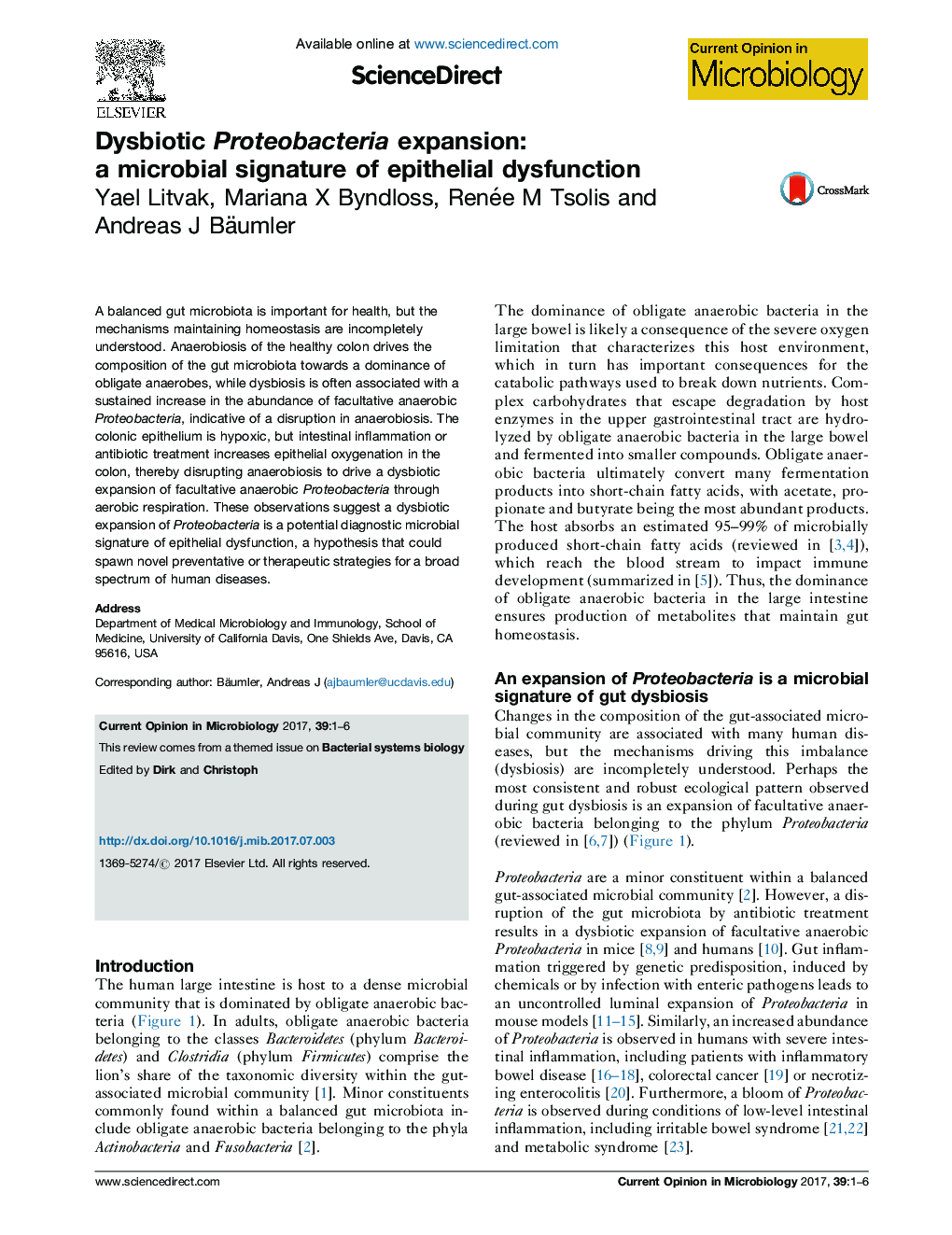| Article ID | Journal | Published Year | Pages | File Type |
|---|---|---|---|---|
| 5671919 | Current Opinion in Microbiology | 2017 | 6 Pages |
â¢Epithelial hypoxia drives anaerobiosis to maintain dominance of obligate anaerobes.â¢Increased epithelial oxygenation disrupts anaerobiosis in the large intestine.â¢Elevated oxygen availability drives a shift from obligate to facultative anaerobes.â¢Proteobacteria expansion is a microbial signature of colonic epithelial dysfunction.
A balanced gut microbiota is important for health, but the mechanisms maintaining homeostasis are incompletely understood. Anaerobiosis of the healthy colon drives the composition of the gut microbiota towards a dominance of obligate anaerobes, while dysbiosis is often associated with a sustained increase in the abundance of facultative anaerobic Proteobacteria, indicative of a disruption in anaerobiosis. The colonic epithelium is hypoxic, but intestinal inflammation or antibiotic treatment increases epithelial oxygenation in the colon, thereby disrupting anaerobiosis to drive a dysbiotic expansion of facultative anaerobic Proteobacteria through aerobic respiration. These observations suggest a dysbiotic expansion of Proteobacteria is a potential diagnostic microbial signature of epithelial dysfunction, a hypothesis that could spawn novel preventative or therapeutic strategies for a broad spectrum of human diseases.
Graphical abstractDownload high-res image (118KB)Download full-size image
